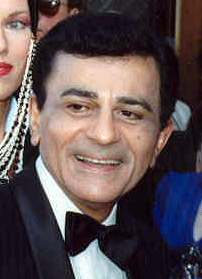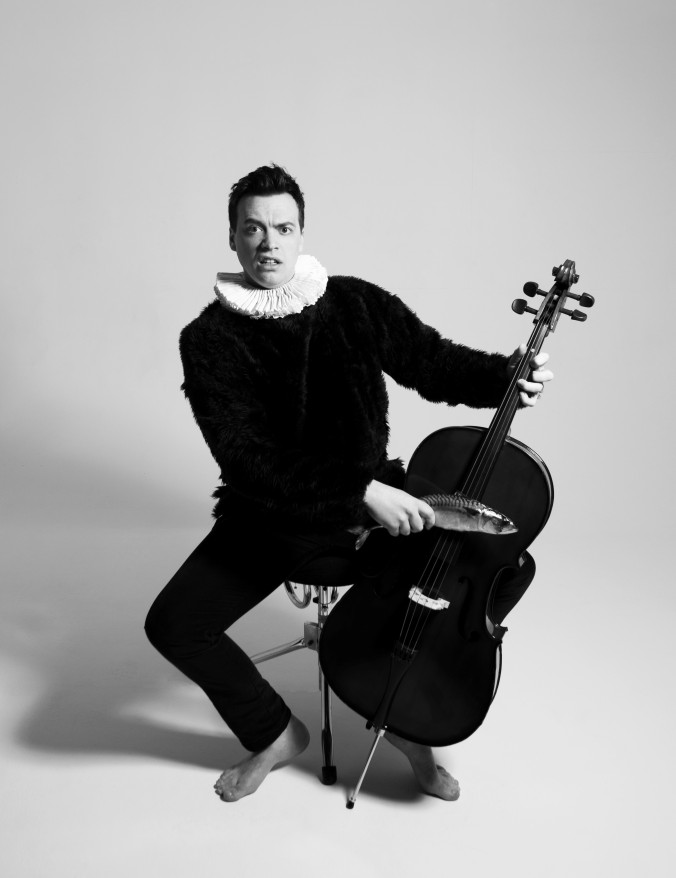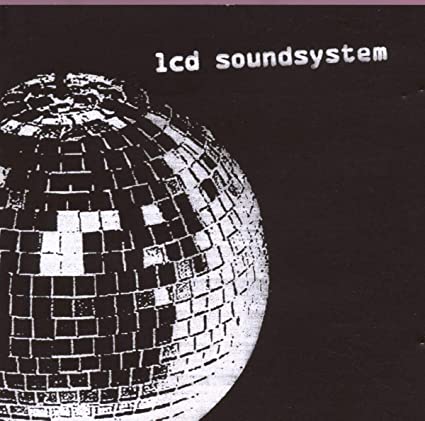Long before I wrote fiction, I was a music journalist and music historian. Those origins bleed through to my present in my fondness for creating playlists to accompany my published works as well as inviting my guest bloggers to do the same for their creations. Over the years, I’ve discovered such playlists have a remarkable ability to viscerally convey the style of a story and encapsulate an author’s influences and approach in a way that words do not match.
A playlist for Overdue: Mystery, Adventure, and the World’s Lost Books, presented a challenge in this regard, but also an opportunity. While Overdue contains my latest work, the novella-length “Provenance,” it is an anthology. Alongside my story are nine other, very different stories by nine other excellent, very different authors.
In short, Overdue is an anthology of stories about quests to recover history’s lost and forgotten books – a concept that seems to have resonated with authors and readers (both of whom tend to be bibliophiles). The anthology is set in a shared-universe joining together my Bel Nemeton series with the world of M.H. Norris’s All the Petty Myths.
The stories in Overdue run from Mythos horror to romance and from supernatural techno-thriller to YA coming of age. For this post, I reached out to my co-authors, inviting them to contribute a track or two or three about their story for this unofficial playlist and say a few words about each selection: was it something reflective of the plot, the characters, the tone, the setting, or even just something they listened to while writing the piece?
Authors, of course, are busy creatures. Not all of them had the time to respond to my request (though, to my great delight, most did). In those cases, I have taken the liberty of including tracks I think fit the story, and why. Where appropriate, I have noted when the selections and commentary are mine and not the author’s.

One of the great advantages of doing a playlist in a format like this is the ability to link to videos which are visually interesting as well as presenting the music. Where multiple links for a track were available, as long as the audio quality was acceptable, I went with the most visually compelling. This allowed me to include some real gems: in addition to music videos (official or fan tributes), we have televised performances from KEPX studios in Seattle and the seminal 1970s music program Burt Sugarman’s Midnight Special. We also have some amazing live performances from Prague, Gdansk, and two shows from London’s celebrated old Wembley Arena.
So, that’s the setup. Now, to paraphrase the late, great Casey Kasem, on with the playlist…
WICKER MAN, by M.H. Norris (selections and commentary courtesy of the author)
1) “The Promise of Action,” by Joseph LoDuca
It’s from The Librarians soundtrack. this was an album that I had on a lot while writing and working on this collection because for me, it captured the feel I wanted. Helped keep me in the spirit.
2) “The Jurassic Park Theme: 65 million years in the making” by The Piano Guys
It’s screamed Rosella at me since they released it. This is her style of music.
WHOLLY HOLY by Kara Dennison (selections and commentary are my own)
3) “Parsifal, Act II” composed by Richard Wagner, arranged/performed by Giorgio Ravoti
Wholly Holy is the quest not only for the legend-shrouded Kyot’s Parzifal, which Wolfram von Eschenbach claimed as the source for his own work, but for the Grail itself. As such, a selection from Wagner’s Parsifal seemed a natural inclusion. But rather than watching a bunch of overly-dressed musicians sitting in a concert hall, I thought we’d do something a little different. Who knew Wagner did such good prog rock/space rock?
4) “Return to Innocence” by Enigma
Enigma’s distinctive blend of electronica, ambient, and new age sounds inevitably pairs well with stories, such as Wholly Holly, which contain elements of the fantastical, allegorical, and magical realism. In this case, however, I find a more direct connection. The song’s progression, especially when expressed in tandem with the imagery of its offical music video, very much parallel’s Faye’s own journey from innocence to disillusion to wonderment.
PERPETUAL HAPPINESS by Heidi J. Hewett (selections and commentary are my own)
5) “Such Reveries” by Duncan Sheik
Yes, Perpetual Happiness is a globe-trotting adventure about the search for a lost volume of the Yongle Dadian. But what really makes the story work, and makes it special, is the relationship between its protagonists, Doctors Carl Rosenstein and Hyacinth Button. So much of the backstory of that relationship plays out in Carl’s memory: what their shared past means for their present and their future, what who she is means for who he is, and vice-versa. Sheik’s song of picturesque, powerful moments in a relationship, seen only through memory, felt like a perfect fit.
6) “Forever Young” by Alphaville
As Perpetual Happiness begins, there is no doubt that Carl is feeling his age: physically, mentally, and emotionally. While not so obvious at the outset, perhaps so is Hyacinth. Throughout the story, memory and present offer juxtapositions of youth, age, and the blessing and curses of each. At the same time, the lost volume of the Yongle Dadian dangles the tantalizing possibility of immortality or at least extending lifespan. All those threads are woven together in Alphaville’s new wave classic.
LOREDANA’S CHALLENGE by Liam Hogan (selections and commentary made with author’s guidance)
7) Main theme from The Good, the Bad, and the Ugly by Ennio Morricone
When Liam suggested something from Morricone for its “instrumental, Italian western vibe,” the hipster in me wanted to go anywhere but the obvious place. But my mind kept coming back to Morricone’s best known piece. Its signature eight note refrain has become musical shorthand for showdowns at high noon. Loredana’s showdown, a battle of wits between chef and critic unfolding in a once grandiose restaurant in the Alps now fallen on hard times, is of a very different sort from that of a Spaghetti Western. But, nonetheless, a showdown it is.
8) “The Marriage of Figaro” composition by Mozart, libretto by Lorenzo Da Ponte
A lovely diegetic selection. Throughout the story, we are periodically made aware of an offscreen dishwasher with a fine baritone voice, literally heard but not seen. It’s one of those little touches which makes Loredana’s Challenge not only so compelling but feel so genuine.
THE BOOK OF THE WAYS by RC Mulhare (selections and commentary courtesy of author)
9) “Meet Me In The Alleyway” by Steve Earle
I listened to the soundtrack to HBO’s True Detective: Season One on repeat while writing my piece (also some elements of the series rubbed off onto the story, particularly the Maybe Magic, Maybe Mundane nature of the plot, even the climactic scene in my piece gave a tip of the hat to the climatic scene at Carcosa in the penultimate episode of TD: Season One). This gritty, Tom Waits-esque blues piece jumped out at me. The lyrics fit the general air of wheeling and dealing over occult stuff, plus the genre fit Jake Booker like a chambray shirt.
10) “Madness Is My Destiny (Orchestral Version)” from Dreams in the Witch House: A Lovecraftian Rock Opera.
I consider this one the main title/end credits theme for “The Book of the Ways”. I finished principal writing on this piece during breaks at the H.P. Lovecraft Film Festival when the Lovecraft Arts and Sciences hosted them at the Rhode Island School of Design in Providence, Rhode island. This piece kept playing as trailer music for a preview that played before their short films blocks and it wriggled its way into my mind.
Check out RC’s full playlist for “The Book of the Ways.”
BRING THE FIRE by Michael O’Brien (selections and commentary courtesy of author)
11) “Revolution Industrielle” by Jean-Michel Jarre
This is an electronic instrumental piece. The work speaks to me of labor and creation, and the progression of our mechanisms from clockwork and steam to digital pulses and video. I find it a profoundly moving piece because our technology has always been extensions of ourselves, and it fits my story in the way it reflects the hacker’s and maker’s desire to make physical laws do things they’ve never done before.
12) “Atom Bomb” by Fluke
Wildly different from the previous choice, this is a bass-heavy track about a woman with the plans and means to dominate the entire world. The unnamed woman is clever, charismatic, and determined, with access to resources beyond the imagination of an ordinary person. While this obviously doesn’t directly reflect Naomi – she just wants to dominate the 5v5 ladder in the latest season of Overwatch – my brain does make the connection. [JB Note: There were two excellent options for the video here. While one spoke a little more to me, I went with the one that seemed to speak to the author’s aesthetic and interests]
UNDER COVER by Sean M. O’dea (selections and commentary courtesy of author)
This wonderful rap medley is poured over a country western beat like spicy honey over a flaky biscuit and I think it represents both the cultural confluence that is Houston, Texas and has the right tenor in terms of lighting up an explosive action scene.
14) [Middle Act] “The Influencers” by Bootsy Collins (featuring FANTAAZMA, Snoop Dog, Dave Stewart, Wiz Khalifa, & Westcoast Stone)
This is a tough one as a secret team of eclectic operatives gallivants across ancient continents in search of a book that is equal parts danger and magic. Nothing says eclectic gallivanting like Bootsy!
15) [Final Act] “Beaty Beats” by Beats Antique
This one was on repeat as I wrote the volatile final scene in a mythical city beneath the Arabian desert between cultists, foreign mercenaries, and tech-savvy secret operatives. “Beaty Beats” captured all these variables. A song that is definitively Middle Eastern laid over a downtempo, electronic foundation and infused with a little hip-hop. It’s a song that makes me want to curl up with a smoking hookah and a thrift store copy of 1,001 Arabian Nights.
CLUE TO THE PAST by Karen Thrower (selections and commentary courtesy of author)
16) “Fate Has Smiled Upon Us” by Marc Streitenfeld, from the Robin Hood soundtrack
I always liked this song, the title would remind me how lucky Lawrence was to be able to find the manuscript in the first place, and make it out alive!
17) “Trespasser,” Dark Solas Theme, by Trevor Morris
Nice, dark, perfect for Hazel on her own quest to destroy the formula.
18) “Chevaliers De Sangreal,” by Hans Zimmer, from The Davinci Code
This song plays at the end of the movie when Tom Hanks character realizes where she is, and when he kneels on top of her tomb it’s this really special moment,(at least to me) and I always felt like finding the manuscript was Lawrence’s special moment, worth the reverence that Tom Hanks portrays in that scene, the thing he had hoped existed and finds it truly does.
PROVENANCE by Jon Black (selections and commentary courtesy of author)
19) “Opportunities (Let’s Make Lots of Money)” by Pet Shop Boys
This song is all about not doing it the right way. It’s about cutting corners and ignoring rules (and laws) to go straight for the main chance and the big score. That’s something the two protagonists and even many of the secondary characters of Provenance can relate to: Cassidy and Hierbabuena’s masterwork forgeries. Jake Booker’s shady treasure hunting past. Even Jen Gerson’s ambition to become one of the world’s foremost linguists, without decades of playing academic games and without a doctorate, differs from the others more in goals and tactics than spirit. I had hoped I might find an alt-country cover of “Opportunities” as a nod to Jake Booker. Perhaps its just as well I could not, PSB’s Wembley performance is so delightful.
20) “Heroes” by David Bowie (with Queen, Mick Ronson, and Ian Hunter)
This is a diegetic selection, literally the song playing on the car radio in the final scene of Provenance as Cassidy and Jen drive into the unknown, questing for the real Sefer Bohem. Both Jen and Cassidy have within them the raw material to be heroes but, up to this moment, their limitations, quirks, and foibles have held them back. Provenance leaves the question unanswered: will their mutual idiosyncrasies cause the nascent partnership to explode in a hot mess or, working together, will each finally unlock their potential to be heroes?
IN THE HEARTS OF LADS by Fio Trethewey (selections and commentary courtesy of author)
21) “Hocus Pocus” by Focus
I was introduced to by the film Baby Driver. Yes, whilst the film itself has aged poorly due to quite horrendous acts by the actors, the soundtrack was able to lit a fire underneath me and “Hocus Pocus” was no exception. It’s upbeat rock anthem felt very much like the boys zooming away out of danger, whether that’s whilst they’re being chased down in Bristol, or dealing with the goons across the United States. It never failed to get me in the mood to write these lads.
22) “Song 2” by Blur
This has a more personal connotation for me. When I was a young student I had a wonderful teacher, and the day we left our school with university in our sights and out of his care he gave us all a CD. This was a playlist of about 20 songs, all of which were songs of his that he grew up with or had a special connection to. The first song was this one. Without fail whenever I listen to it, I feel like a teenager again with the world before me. It really was a good fit for the playlist. [JB note: There were several good options for video on this one, but I was unable to resist the dialback to the old Wembley Arena a full decade after the earlier video]
23) “The Goonies” theme by Dave Grustin
This is a little different to the other two. A orchestral 80s tune that is a softer instrumental, that builds into epic horns and slows back down again. If you’ve not seen The Goonies, you may have been living under a rock but as that was one of the original inspirations for the story it would be remiss not to talk about it. In case you don’t know, it’s an 80s adventure film by Steven Spielberg about a group of kids who are trying to find missing pirate treasure – whilst being chased by a family of murderous thieves.
When I listen to the song, not only does it also make me feel young again, but I feel the musical beats connects the emotional paths of the boys that they are going through. My story is about four very different boys, who find themselves connected by the internet, connected by their fears and dreams and are able to go on their own grand adventure together. Grustin’s music is able to weave a musical theme for us does make me feel connected to Duncan, Hobbs, Lucas and Austin when I listen to it and make me wonder how these boys are doing now, 7 years later!
Check out Fio’s full playlist for “In the Hearts of Lads.”
Overdue: Mystery, Adventure, and the World’s Lost Books, from 18th Wall Productions, is now available in paperback, Kindle, and other eBook formats.






